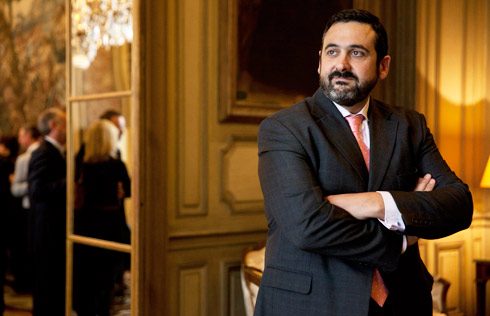Airline boss got off to a flying start
Few would now disdain Wang and his dream, which is to emulate the huge success of the world's first budget carrier, Southwest Airlines. Currently, the Shanghai-based carrier has a fleet of 36, 14 of which are owned by the company.
"We plan to expand our fleet size to 60 by 2015. That's many more each year," Wang said.
Wang's aggressive expansion is backed by the carrier's much-higher-than-average seat-kilometer utilization, a key indicator to reflect a carrier's operating efficiency.
Public information shows that even during the poor market in 2012, Spring Airlines maintained a seat-km utilization of up to 95 percent, in stark contrast with the industry average of between 79 and 80 percent.
"Seat-km utilization is the lifeline of an airline. Usually a carrier has to reach between 70 and 75 percent to strike a balance," said Li Lei, an analyst with Minzu Securities.
Accurate positioning, successful marketing and sales have secured a high rate of seat-km utilization for the carrier, which in turn ensures Spring Airlines stays profitable even during economic downturns.
"The carrier also finds great support from its parent company Spring Travel Agency, which guarantees a high passenger flow," Li said.
As Spring Airlines relishes the success of a low-cost operation, there is a rising number of traditional airlines starting to undertake cost-cutting strategies to gain a bigger market share.
One of the latest budget airline players is China Eastern Airlines Co Ltd. It set up a joint venture called Jetstar Hong Kong with the Qantas Group to tap into the low-cost flight market.
"I welcome China Eastern and its partner onboard," said Wang, expressing calmness in the face of competition.
"The budget airline market is full of potential in China but we are currently the only low-cost carrier with less than 3 percent of a stake in the nation's aviation market," Wang added.
In Europe and the United States, budget airlines usually take up between 25 and 30 percent of the aviation market, with the world average at about 25 percent.
Wang is never short of solutions to fend off competition from his rivals. For example, when he found low prices were not enough to attract passengers, he decided to offer themed flights by dressing flight crews as maids or butlers.
"Most of our customers are young white-collar workers. We offer such themed flights to meet their demand," said Spring Airlines spokesman Zhang Wu'an.
According to the spokesman, the clothes are designed in accordance with the tastes of young people and are cuter than the traditional flight attendants' uniforms.



















